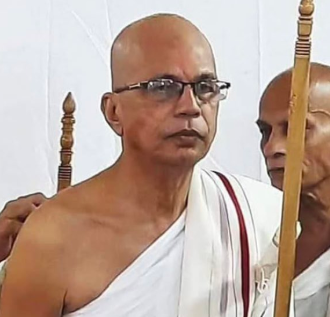
In a story that sounds almost unbelievable, one of Mukesh Ambani's closest associates has left behind a life of unimaginable wealth and corporate success to embrace a life of spirituality and simplicity. We are talking about Prakash Shah, who was the Vice President of Reliance Industries and a key figure in the company's top management. Shah, who once earned a staggering annual salary of ₹75 crore (approximately $9 million USD), has now chosen the path of asceticism, leaving many in awe of his decision.
Who is Prakash Shah?
Prakash Shah is an exceptionally well-educated and highly successful individual. He holds both undergraduate and postgraduate degrees in Chemical Engineering from the prestigious Indian Institute of Technology (IIT) Bombay. His academic brilliance translated into professional excellence as he climbed the corporate ladder to become Vice President at Reliance Industries, India’s largest conglomerate, led by business magnate Mukesh Ambani.
Often referred to as Mukesh Ambani’s “right-hand man,” Prakash Shah played a critical role in several of Reliance’s landmark projects. He was instrumental in the success of major ventures such as the Jamnagar Petcoke Gasification Project and the Petcoke Marketing division. His hard work, strategic thinking, and leadership significantly contributed to Reliance Industries’ impressive growth and global standing.
Family Background
Prakash Shah’s personal life was equally stable and prosperous. His wife, Naina Shah, is a commerce graduate, and together they have two sons. Interestingly, one of their sons had already chosen a monastic life prior to Prakash Shah’s own spiritual transformation. Their other son is married and has a child, leading a traditional family life.
The Turning Point
At the age of 63, after decades of corporate leadership and unparalleled success, Prakash Shah retired from Reliance Industries. But instead of settling into a comfortable retirement, he made a decision that shocked many — he chose to renounce all material possessions and adopt the life of a monk. His wife, Naina Shah, chose to walk this spiritual path alongside him.
Though Shah had long desired to take this spiritual step, the COVID-19 pandemic delayed their plans. However, on the auspicious occasion of Mahavir Jayanti, a significant festival in Jainism, the couple finally took diksha — a solemn initiation into ascetic life.
What is Diksha?
Diksha is a profound spiritual initiation in which individuals give up all worldly pleasures and possessions to embrace a life devoted to spiritual discipline and the pursuit of moksha (liberation from the cycle of birth and death). Those who take diksha live a life of extreme simplicity, performing good deeds, practicing non-violence, and seeking inner peace.
For Prakash Shah and his wife, diksha meant renouncing their luxurious lifestyle, giving up their wealth, comforts, and social status, and adopting a life of humility and spiritual rigor.
Life After Diksha
Today, at the age of 64, Prakash Shah lives a life that stands in stark contrast to his previous one. He walks barefoot, wears simple white clothing, and survives by seeking alms. His wife accompanies him on this austere journey. Their diksha ceremony took place in Borivali, Mumbai, marking the formal beginning of their monastic life.
The transformation from corporate titan to monk reflects not just a personal choice but a deep philosophical belief that true happiness lies not in wealth or status but in spiritual fulfillment and simplicity.
A Powerful Message
Prakash Shah’s journey serves as a powerful reminder of the transient nature of material success. Despite earning a fortune and holding one of the most influential corporate positions in India, he found true meaning and peace in renouncing it all for a life of spiritual discipline. His story is a rare example of courage, detachment, and an unshakeable commitment to higher values.
As his story spreads, it continues to inspire countless individuals to reflect on their own priorities in life. In a world increasingly driven by consumerism and material desires, Prakash Shah’s decision offers a profound perspective on where true happiness can be found.




